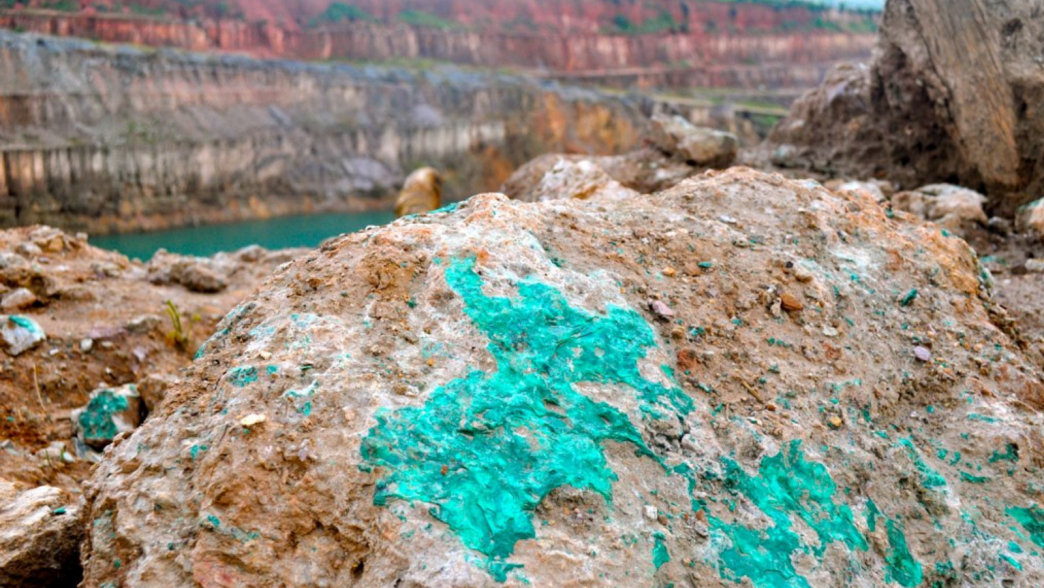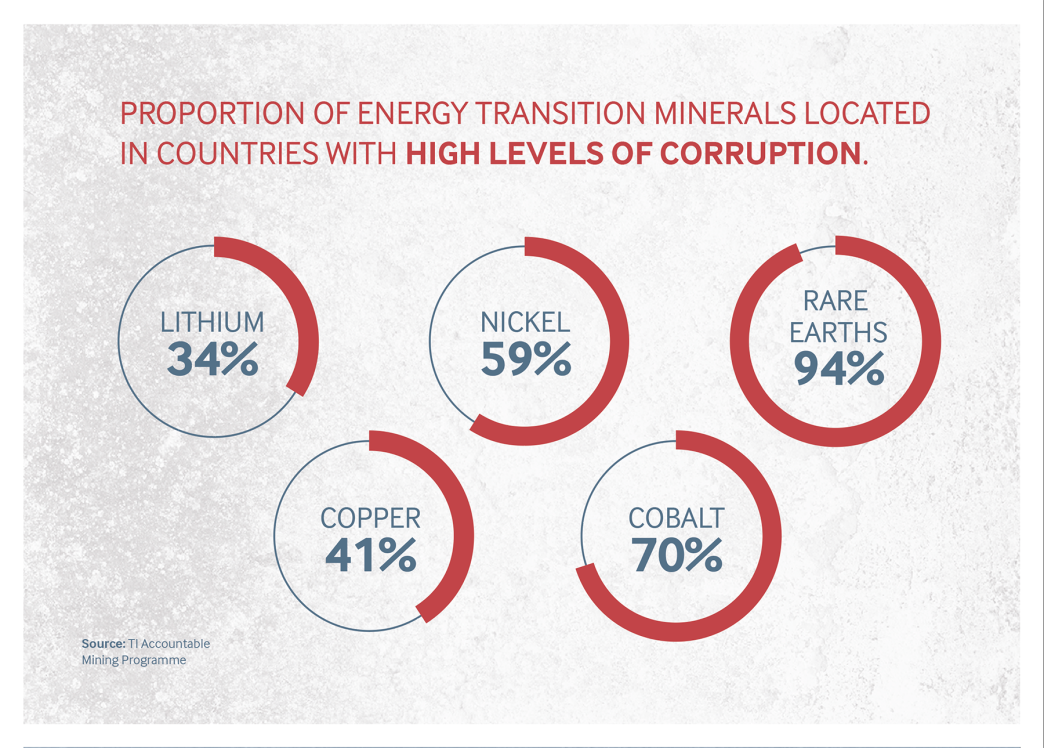
How to Fight Corruption in Transition Mineral-Producing Countries: A Must for Meeting Climate and Energy Transition Goals
To meet climate goals, the world must urgently move away from fossil fuels toward low-carbon energy infrastructure. Yet this infrastructure—including wind turbines, solar panels and electric vehicles (EVs)—requires a wide array of minerals as inputs. The International Energy Agency (IEA) estimates that meeting Paris Agreement climate targets will require at least a quadrupling by 2040 of demand for minerals used in low-carbon technologies. For some minerals, the demand could even reach 30 times current levels by 2040.
But with soaring demand comes ever-greater risk of corruption. Past commodity booms have unleashed large waves of corruption, and even the anticipation of a boom can incentivize problematic behavior. Fast-paced deal-making and the promise of soaring profits increases private and public sector actors’ risk appetites, particularly around entities like state-owned companies. To further complicate matters, the energy transition relies on minerals found in countries where corruption is a severe challenge: large portions of the world’s cobalt, nickel, copper, lithium and rare earth minerals are mined and processed in countries that rank poorly in Transparency International’s Corruption Perceptions Index.
The risks are real and growing. The history of mining is riddled with injustices, from the destruction of local environments to at times devastating harm to local communities. If the energy transition is to be fair and just, we cannot have a situation where mineral-rich countries and communities endure the upheaval and damage of mining without any of the benefits—especially if their minerals are then used to support an energy transition happening elsewhere. There cannot be any “sacrifice zones” in mineral-rich countries in the name of an energy transition in the most developed parts of the world. And if the same elites pocket all of the financial benefits of mining at the expense of the public, how can this ever be just?
If the energy transition is to be fair and just, we cannot have a situation where mineral-rich countries and communities endure the upheaval and damage of mining without any of the benefits.
Our partner Gay Ordenes, Asia director and anticorruption lead at the Extractive Industries Transparency Initiative (EITI) notes: “The energy transition’s demand for minerals has the potential to increase governance and corruption risks in mineral-rich countries. As discussed in a new EITI report, the implications of this range from the local to the global level—from the potential for environmental damage and harm to local communities to supply chain disruptions that could jeopardize global decarbonization goals. Concerted efforts to strengthen governance and fight corruption are needed to tackle this challenge.”
Working together to effect change
The scale of the challenge is as large as it is important. Given the urgent need for action and diverse expertise existing around the world on this topic, since March 2022, NRGI has coordinated an Expert Group on Preventing Corruption in Transition Mineral Supply Chains alongside partners in the OECD Centre for Responsible Business Conduct and EITI.
The group consists of experts from from civil society, governments, academia and international organizations, including among others representatives from Transparency International, USAID, the Sustainable Minerals Institute and the IEA.
NRGI and its close partners in the expert group are now launching key anticorruption recommendations on transition minerals, targeting governments, businesses, investors, international organizations and others working in the climate space. These recommendations can help decisionmakers to better protect local communities and the environment, limit corruption risks, and ensure that corrupt actors are held to account for their wrongdoing.
Implementation of these recommendations is not only best practice for companies across mineral supply chains, but can also help enable responsible business conduct, increase investment in mining communities and lead to more resilient and secure supply of minerals critical to the green transition.
Rashad Abelson, legal expert at the OECD Centre for Responsible Business Conduct, notes: “Effectively addressing corruption in the minerals sector requires a ‘whole of supply chain’ approach and urgent mobilization of all stakeholders to tackle corruption issues from different angles (e.g. tax transparency, beneficial ownership, supply chain due diligence, mine site licencing). That is why we were happy to work with this diverse expert group to learn from one another about respective policy areas and share expertise to help develop this document. Implementation of these recommendations is not only best practice for companies across mineral supply chains, but can also help enable responsible business conduct, increase investment in mining communities and lead to more resilient and secure supply of minerals critical to the green transition.”
In 2023, expert group members will engage further with governments, businesses, investors and international organizations about the changes they should be making to prevent corruption in transition mineral supply chains. To this end we will explore different avenues, from legislation like the upcoming EU Critical Raw Materials Act to strengthened industry standards.
Authors

Susannah Fitzgerald
Governance Officer

Matthieu Salomon
Lead, Anticorruption

